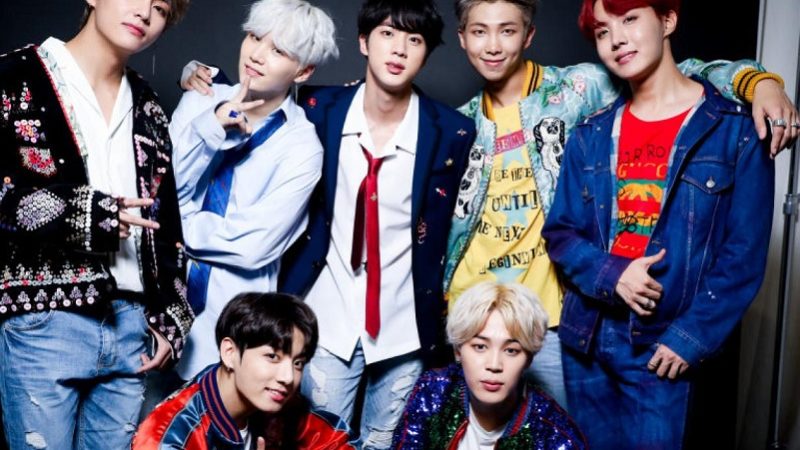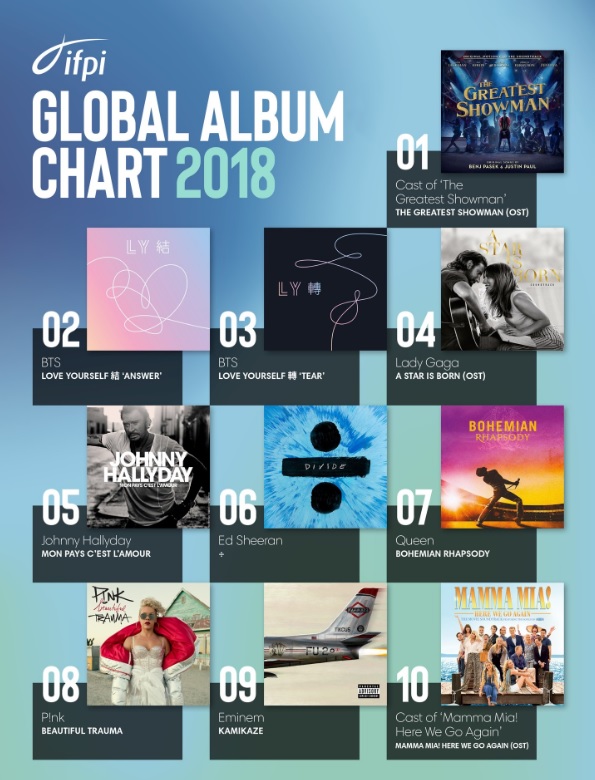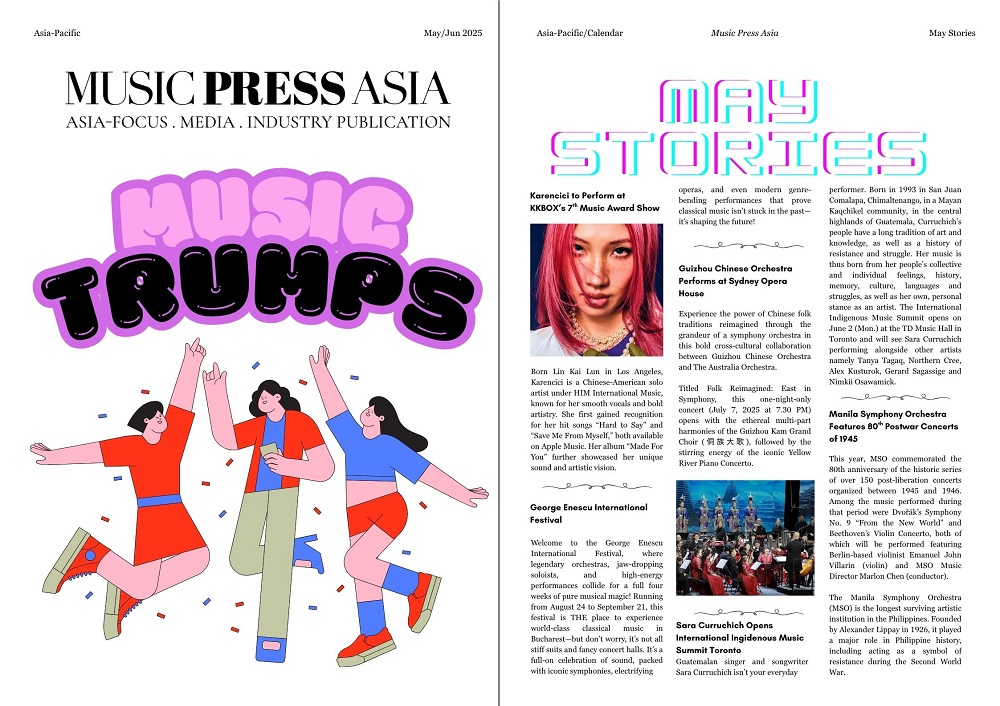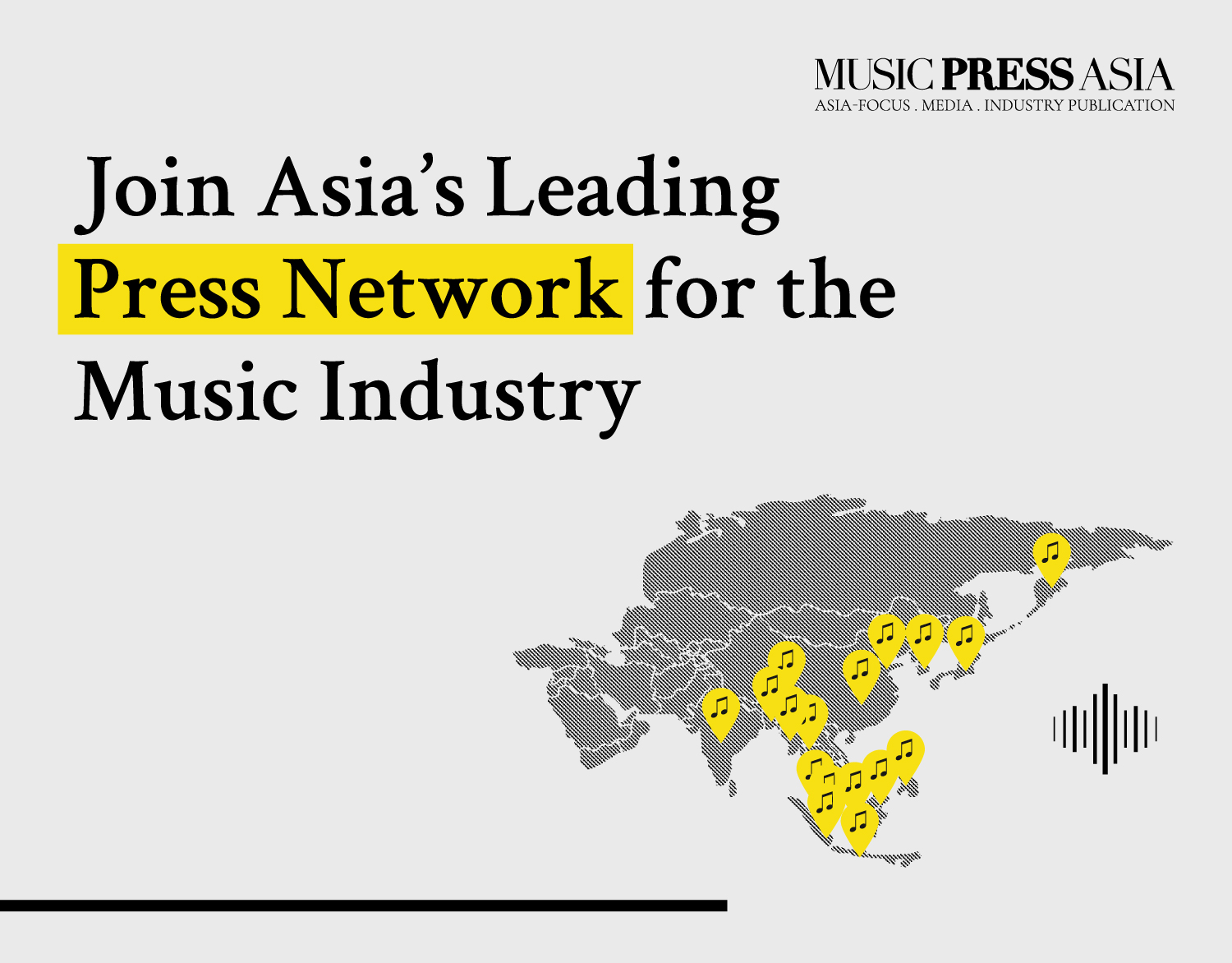BTS Tops IFPI Global Album Charts 2018, Korea Asia’s Next Entertainment Powerhouse
Surpassing Lady Gaga’s award winning album ‘A Star Is Born’, BTS sits comfortably on IFPI’s Top 10 Global Album Charts with two sweeping singles.
Surpassing Lady Gaga’s award winning album ‘A Star Is Born’, BTS sits comfortably on IFPI’s Top 10 Global Album Charts with two sweeping singles.

BTS two singles on IFPI's Top 10 Best Selling Albums 2018.
It’s been proven again and again that K-Pop music acts are undoubtedly taking the lead when it comes to achieving global recognition for Asian acts. BTS, a boy group signed under YG Entertainment in Korea, takes global fame one step at a time when K-Pop’s popularity began to soar with the development in music streaming technology.
Earlier today, IFPI announced its 10 Top Selling Albums of 2018 sees BTS’ singles ‘Answers’ and ‘Tear‘ ranked at No.2 and 3 surpassing Grammy award winner Lady Gaga (No.4), Ed Sheeran (No. 6) and Queen’s latest ‘Bohemian Rhapsody’. Within 6 years of receiving its very first ‘New Artist of the Year’ award from Korea’s prestigious music awards – the Melon Music Awards – the boy group went on to appear at some of the world’s most recognised music award show in the U.S. including American Music Awards and Billboard Music Awards.

IFPI Global Album Chart 2018.
When it comes to signing and promoting new acts regionally or internationally, Korea’s entertainment format makes a significant testament to today’s show business proving perhaps that great music alone may no longer be the only element that give rise to global fame. In comparison to major labels from the West, artist management companies in Korea consider entertainment a viable business that promises return in investment through its tried and tested strategies signing new acts; by asserting full responsibilities and rights in an artist’s creative output from artists development, music recording & publishing to live stage performances.
Today, South Korea’s show business and pop culture format has reached one of its most glorifying moments in developing and exporting its acts to the West and rest of the world. K-Pop has become Asia’s largest cultural phenomenon fabricated to provide entertaining content in the Korean language, and economic sustainability and growth for its entertainment industry. After all, what’s wrong with implementing long-term strategies to strengthen its position as the next global entertainment powerhouse?
Today, S.Korea continues to headline some of music entertainment largest efforts, after the U.S.A, in successfully turning celebrity acts into nation- and worldwide assets.













